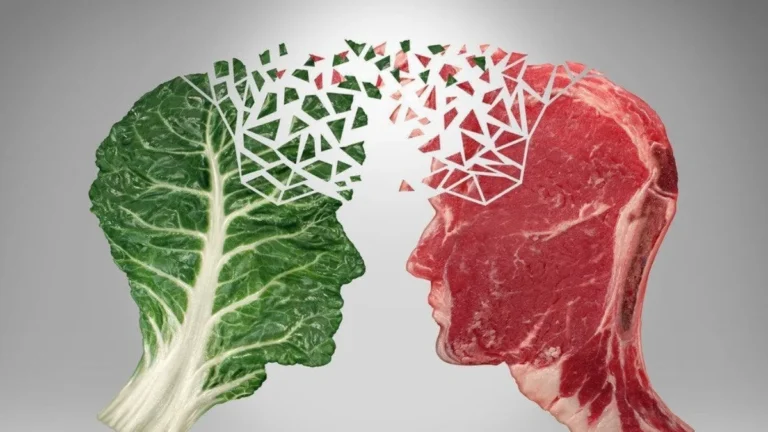The #6 Longevity Food That 60% of Americans Are Skipping (These Foods Boost Your Brain and Body All day)

At 78, Frank moved weights that men half his age struggled with. His sharp mind and boundless energy defied everything I thought I knew about aging. While most Americans his age battle memory fog, joint pain, and declining strength, Frank seemed immune to time’s effects.
The shocking truth? It wasn’t genetics or expensive supplements. Frank revealed that 60% of Americans unknowingly skip the exact foods that could transform their aging process.
Frank’s secret lay in six specific longevity foods that most people ignore daily. These scientifically proven nutrients don’t just slow aging—they actively boost brain function and sustained energy throughout the day.

When consumed consistently, these foods create a protective shield against cognitive decline while maintaining muscle strength and vitality well into your golden years.
Point 1: The Alarming Statistics Behind America’s Nutritional Gap
Recent studies reveal a startling truth: 60% of Americans consistently skip the six most powerful longevity foods proven to extend both lifespan and healthspan. Research from Harvard’s School of Public Health shows this dietary gap contributes to premature aging and cognitive decline.

While residents of Blue Zones like Okinawa consume these foods daily, the average American diet contains less than 30% of recommended amounts. Mediterranean populations eating these foods regularly live 8-12 years longer than their American counterparts. This nutritional disconnect explains why American life expectancy has plateaued despite medical advances. The foods Americans avoid most include fatty fish, leafy greens, berries, nuts, fermented foods, and legumes.
Point 2: The Science of Longevity Foods – What Makes Them Special
Longevity foods contain unique bioactive compounds that work at the cellular level to slow aging processes. Polyphenols found in these foods activate sirtuins, proteins that repair DNA damage and extend cellular lifespan. Omega-3 fatty acids reduce chronic inflammation, the root cause of age-related diseases affecting brain and body function.
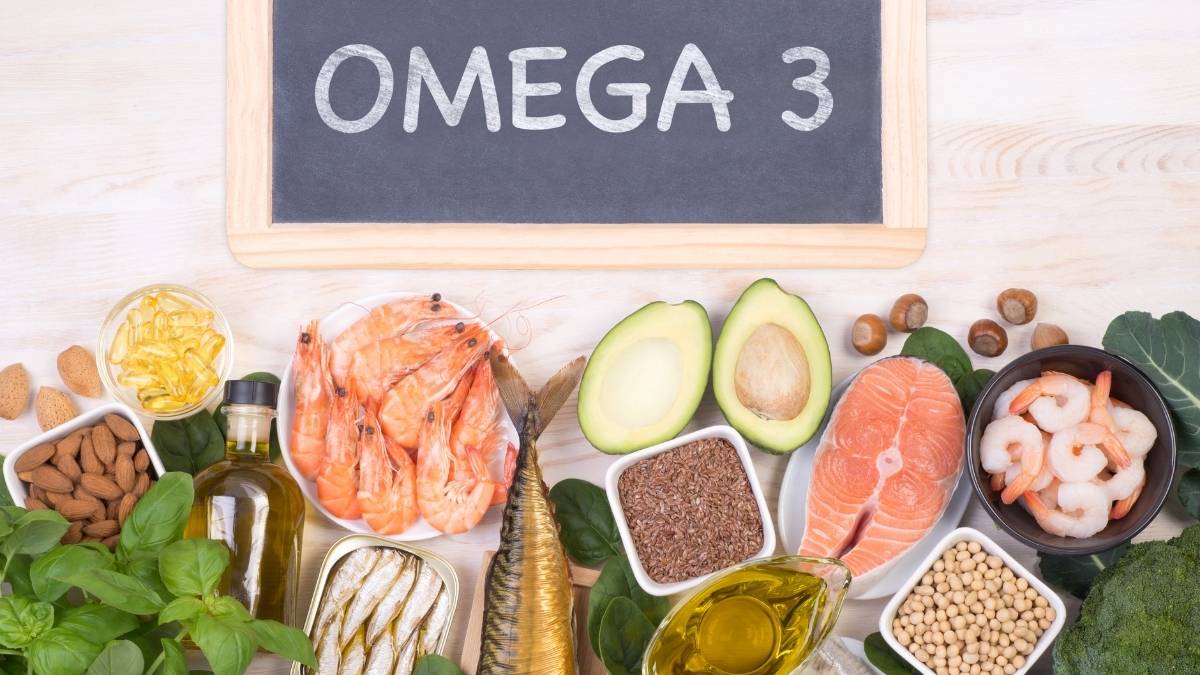
Antioxidants neutralize free radicals that accelerate aging and cognitive decline. These nutrients trigger autophagy, your body’s natural cellular cleanup system that removes damaged proteins.
When consumed regularly, they enhance mitochondrial function, boosting energy production throughout the day. The synergistic effect of these compounds creates a protective shield against age-related deterioration.
Point 3: FEATURED FOOD #1 – Fatty Fish (Salmon, Mackerel, Sardines)
Key Benefits:
- DHA omega-3s build brain tissue and improve memory formation
- EPA reduces inflammation linked to depression and anxiety
- Supports cardiovascular health by lowering triglycerides
- Enhances cognitive processing speed and focus
Consumption Reality: Only 10% of Americans meet the recommended two servings per week. Wild-caught salmon provides 1,200mg of omega-3s per serving, while farm-raised contains 800mg. Sardines offer the highest concentration with fewer mercury concerns.

Best Timing: Consume at lunch for sustained afternoon brain power or dinner for overnight brain repair. Regular consumption shows measurable improvements in memory tests within 6 weeks. Studies demonstrate 40% slower cognitive decline in adults eating fish twice weekly compared to those avoiding it.
Point 4: FEATURED FOOD #2 – Leafy Greens (Spinach, Kale, Swiss Chard)
Powerhouse Nutrients:
- Folate supports neurotransmitter production and mood regulation
- Lutein protects against age-related eye diseases and brain inflammation
- Vitamin K enhances memory and cognitive processing
- Nitrates improve blood flow to the brain within hours
Research shows people eating leafy greens daily have brains 11 years younger than those who avoid them. Consumption Tips: Add spinach to morning smoothies for sustained energy release. Kale chips provide afternoon snacking without energy crashes.

Swiss chard works well in evening meals for overnight nutrient absorption. Best Timing: Morning consumption maximizes nitrate conversion for all-day brain benefits. Studies reveal eating 1-2 cups daily reduces dementia risk by 35% over 5 years.
Point 5: FEATURED FOOD #3 – Berries (Blueberries, Blackberries, Raspberries)
Anthocyanin Power:
- Crosses blood-brain barrier to directly protect neurons
- Reduces inflammatory markers linked to cognitive decline
- Improves communication between brain cells
- Enhances memory consolidation during sleep
Harvard research following 16,000 women found those eating berries twice weekly had 2.5 years slower memory decline. Memory Benefits: Consuming 1 cup of blueberries shows improved word recall within 2 hours. Blackberries contain the highest antioxidant levels, while raspberries provide fiber for gut-brain health.
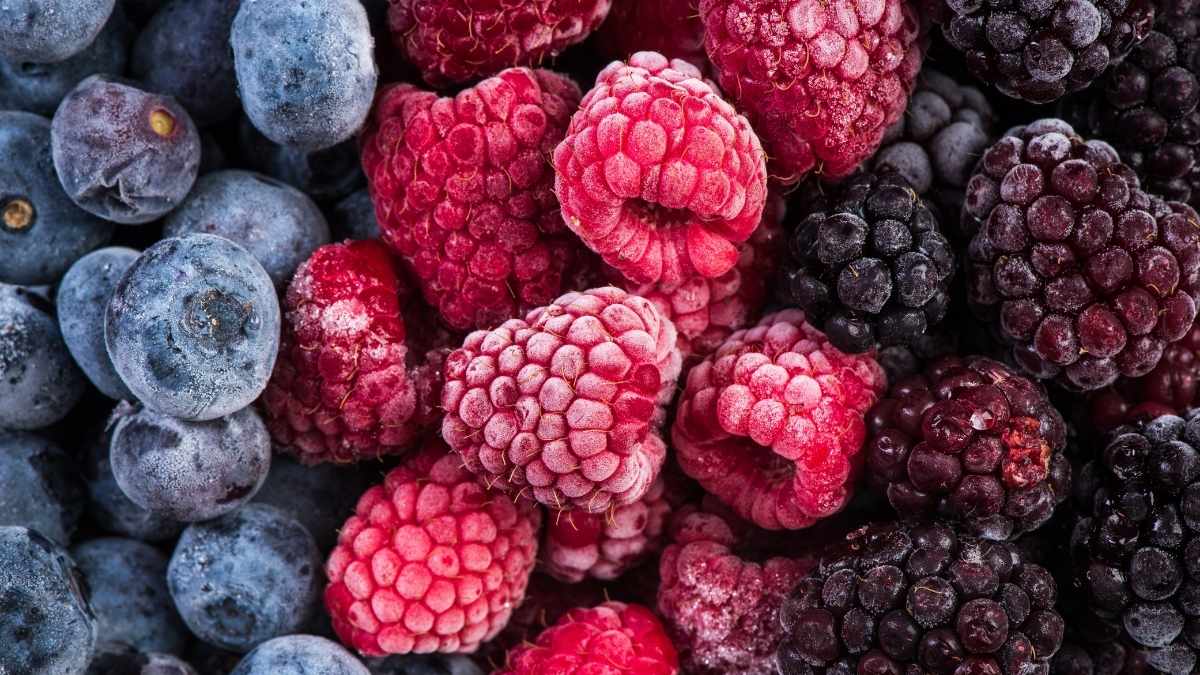
Optimal Timing: Morning berries provide sustained glucose for brain function without afternoon crashes. Evening consumption supports overnight memory processing. Frozen berries retain 90% of fresh nutrients and offer year-round availability at lower costs.
Point 6: FEATURED FOOD #4 – Nuts and Seeds (Walnuts, Almonds, Flaxseeds)
Healthy Fat Powerhouse:
- Walnuts provide ALA omega-3s that convert to brain-protective DHA
- Almonds deliver vitamin E that prevents cognitive decline
- Flaxseeds offer lignans that balance hormones and reduce inflammation
- Protein content stabilizes blood sugar for sustained mental energy
Studies show eating nuts 5 times weekly reduces heart disease risk by 35% and improves brain function scores by 20%. Weight Misconception Busted: Research proves people eating nuts daily weigh less than those avoiding them due to increased satiety and metabolism. One ounce provides lasting fullness without blood sugar spikes.
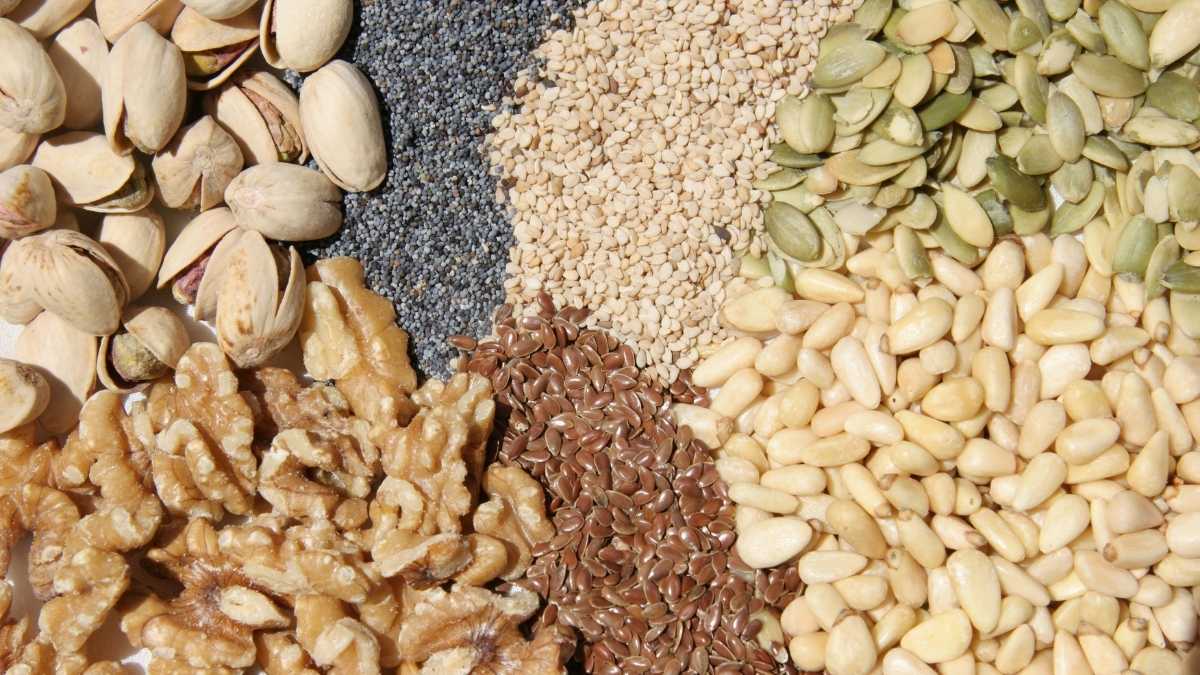
Best Timing: Morning consumption enhances focus for 4-6 hours. Afternoon nuts prevent energy crashes better than processed snacks. Evening flaxseeds support overnight hormone production and brain repair processes.
Point 7: FEATURED FOOD #5 – Fermented Foods (Yogurt, Kimchi, Sauerkraut)
Gut-Brain Connection:
- Beneficial bacteria produce neurotransmitters including serotonin and GABA
- Probiotics reduce anxiety and improve mood within 4 weeks
- Fermented foods strengthen intestinal barrier against inflammation
- Microbiome diversity correlates with better memory and learning
Japanese populations consuming fermented foods daily show 23% lower dementia rates compared to Western diets. Immune Benefits: Regular consumption increases natural killer cell activity by 40%, enhancing disease resistance. Greek yogurt provides the most protein while kimchi offers the widest bacterial variety.
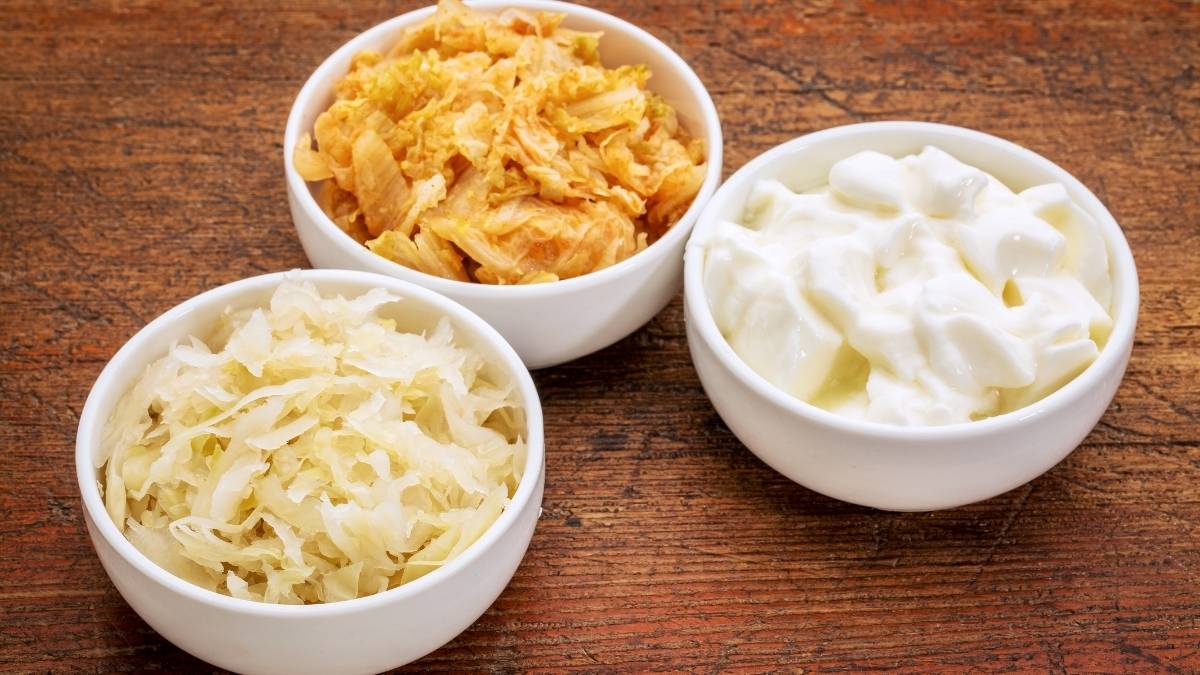
Cultural Wisdom: Okinawans eat miso soup daily, contributing to their exceptional longevity. Timing Strategy: Morning yogurt feeds beneficial bacteria after overnight fasting. Evening fermented vegetables support digestive repair during sleep.
Point 8: FEATURED FOOD #6 – Legumes (Beans, Lentils, Chickpeas)
Longevity Fuel:
- High fiber feeds beneficial gut bacteria that produce anti-aging compounds
- Complete proteins when combined with grains support muscle preservation
- Resistant starch improves insulin sensitivity and blood sugar control
- Folate and magnesium support cardiovascular and brain health
Blue Zone populations eating legumes daily live 4 years longer than those consuming them rarely. Energy Benefits: Complex carbohydrates provide steady glucose release for 3-4 hours without crashes. Black beans offer the highest antioxidant content while lentils cook fastest for busy schedules.
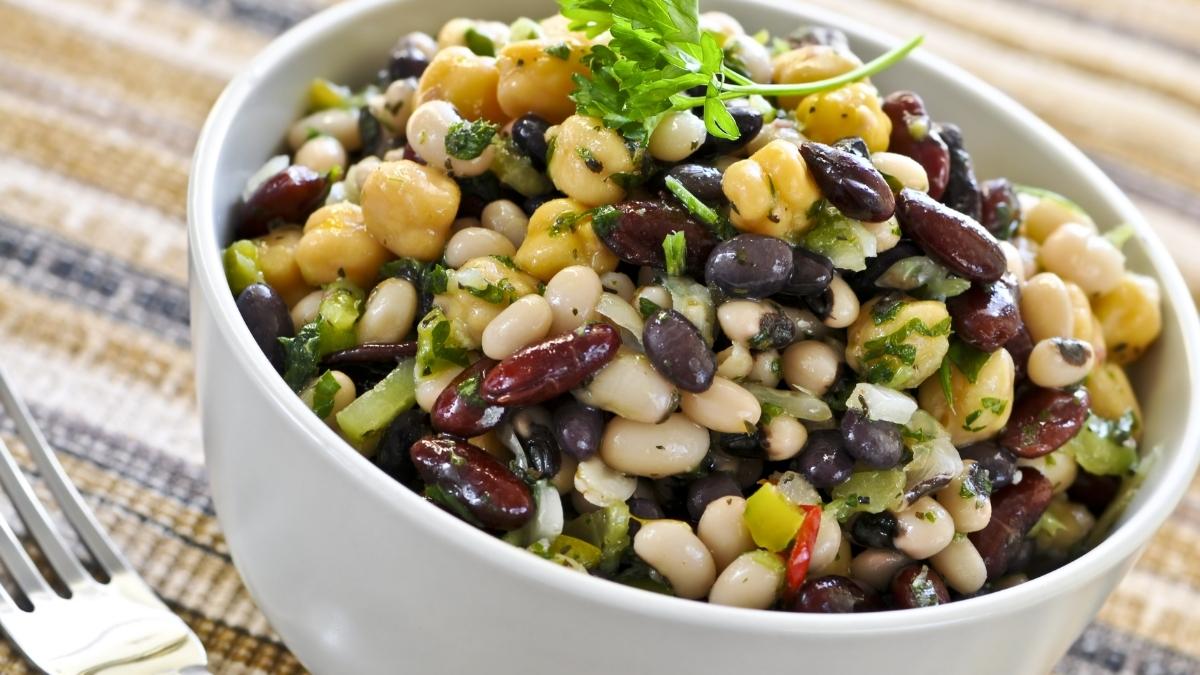
Blood Sugar Magic: Consuming legumes reduces post-meal glucose spikes by 30% compared to refined carbs. Best Timing: Lunch legumes provide sustained afternoon energy. Evening consumption supports overnight muscle recovery and stable morning blood sugar levels.
Point 9: The Daily Implementation Strategy – Making These Foods Work for Your Lifestyle
Simple Framework:
- Breakfast: Greek yogurt with berries and ground flaxseed
- Lunch: Spinach salad with salmon and walnuts
- Snack: Handful of almonds or hummus with vegetables
- Dinner: Lentil soup with sauerkraut side
Overcoming Barriers: Frozen fish costs 40% less than fresh while maintaining nutrients. Canned legumes save cooking time without sacrificing benefits. Pre-washed greens eliminate prep work for busy schedules. Cost Solutions: Buying nuts in bulk reduces expense by 60%. Seasonal berries can be frozen for year-round use.

Expected Results: Week 2 brings improved energy and focus. Month 1 shows better sleep and mood stability. Month 3 delivers measurable improvements in memory tests and cardiovascular markers. Long-term adherence reduces chronic disease risk by 50% while adding 8-12 healthy years to lifespan.
Lastly,
Your journey to longevity doesn’t require expensive supplements or complicated regimens. These six foods offer a scientifically proven path to enhanced brain function and sustained energy that 60% of Americans are missing. Small changes create remarkable results when consistency meets time.
Start with one food this week, then gradually add others until they become natural parts of your daily routine. Your future self will thank you for the mental clarity, physical vitality, and extra years of healthy living these simple dietary choices provide.
Remember, every meal is an opportunity to invest in your brain and body’s long-term health. The choice between aging gracefully or struggling with decline often comes down to what you put on your plate today. Transform your health one bite at a time.




